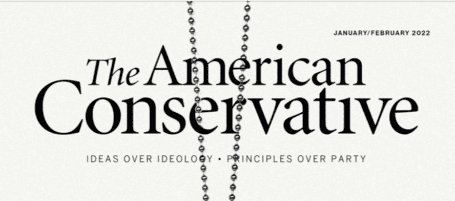Organization Trends
The War on the Electoral College: Interstate Compact
How liberal groups are using conservative front men and exotic trips to assault the Constitution


The War on the Electoral College (full series)
Interstate Compact | Bypassing the Constitution
In Oklahoma | NPV Conflicts of Interest
After the disastrous COVID-inspired changes to the 2020 election, you might think the left is finished with voting reforms. But an even bigger effort is coming, one that promises to permanently hand Democrats a built-in advantage and all but ensure no Republican wins the presidency again.
Meet National Popular Vote, the group spearheading the campaign to destroy the Electoral College and abandon centuries of constitutional history in the name of saving democracy (read: electing Democrats). If NPV’s plans succeed, it would mean the end of elections as we know them, with would-be presidents shunting aside swing states and ignoring “flyover country” to schmooze voters in Manhattan and San Francisco. It would create the top-down nightmare that America’s founders fought desperately to prevent.
This campaign isn’t being waged just by left-wing activists but by trusted conservative lobbyists targeting Republican politicians in bright-red states. It’s the kind of deception mastered by leftists from Margaret Sanger to Saul Alinsky, fooling your opponents into believing they’re fighting you when they’re really fighting for you.
My colleagues and I at the Capital Research Center have exposed the plan to effectively federalize all future elections through a combination of hastily adopted vote-by-mail rules, privately funded drop boxes in major U.S. cities, and nonprofits that specialize in flooding mailboxes with absentee ballot forms in battleground states. That plan sits astride a larger “voting machine,” big foundations that pumped up 2020 Census figures in blue states, nonprofits that specialize in registering Democratic constituencies to vote, and a slew of pro-gerrymandering lawyers led by Eric Holder.
Together they reveal the radical left’s vision: one-party rule from Washington, D.C., with no pesky Constitution to stop them. NPV is the latest step in that plan.
National Popular Vote Interstate Compact
According to Article II, Section 1 of the Constitution, each state receives a certain number of electoral votes equal to its total number of U.S. senators and U.S. representatives (anywhere from 3 to 55 votes), which are reapportioned after each census. Those electors meet as a body every four years to vote for the next president and vice president, with the results sent to the president of the Senate (who is also the vice president) for approval during a joint session of Congress, during which objections to individual electors are considered. The candidate who receives a simple majority (270 votes) wins.
If that sounds inefficient or clunky, that’s the point. The founders’ careful strategy in establishing a representative republic hobbled by checks and balances also extended to the Electoral College, which was just as plodding in 1787 as it is in 2021. Elections were intended to be the domain of state legislatures, not the federal government, giving them broad discretion to run elections as they see fit including how to award electoral votes.
For most states, that means a winner-take-all system in which the statewide winner takes all of that state’s electoral votes. (Maine and Nebraska have opted for a different approach. Two electors are selected on a statewide basis, the rest by congressional district.) It’s meant to ensure smaller communities are represented at the national level instead of being drowned out by big cities. It isn’t actually that unique—numerous countries with parliamentary systems select their executives through the legislature, including the United Kingdom, Italy, Germany, Australia, and Japan.
But this is hopelessly undemocratic and out of date, according to National Popular Vote. The group formed in 2006 with the mission to eliminate the Electoral College by ignoring it.
NPV proposes that the candidate who wins the popular vote at the national level—which happens to be the Democrat in every election since 2008—should receive all electoral votes from states that adopt the NPV plan, regardless of whether the candidate wins that state’s popular vote. If every state were to pass NPV legislation, the winner of the popular vote would win all 538 electoral votes and the loser would win none.
NPV believes that its plan would cure the nation’s deep political polarization. But is that true?
Imagine an alternate 2016 election in which every state adopted the NPV plan. Hillary Clinton, not Donald J. Trump, would emerge the winner by a scant two million votes out of an electorate of nearly 124 million voters. Each of the 30 states that voted for Trump—including Pennsylvania and Michigan, which flipped into the GOP column for the first time since 1988—would have instead sent their 308 electoral votes to Clinton, even though she lost those and other swing states.
What message would that send to the Trump voters in the purple states that decided the 2016 election? Far from mending fences, bypassing the Electoral College would permanently alienate tens of millions of already disillusioned Americans by proving what they currently suspect: Their vote doesn’t matter.
American elections would never be the same. Instead of wooing voters in battleground states with small-to-middling populations—think North Carolina, Iowa, and Arizona—savvy campaigners would dedicate all their time to churning out absurdly high turnouts in the biggest states: New York, Texas, California, Florida, Illinois. Time spent campaigning in smaller states would be time wasted.
Few people realize the extent and power of the left’s network of professional voter registration and get-out-the-vote groups, which exist to produce votes for Democrats. Those groups are currently hindered by having to focus on swing states. Eliminating the Electoral College would simplify their strategy to greasing up a handful of major cities—Philadelphia, New York, and Chicago—instead of winning voters across entire states.
Deciding presidents by popular vote does away with the entire reason the Constitution gives states, not the federal government, the power to run elections. Urban voter turnout machines would decide the outcome of every election. It would transform presidential elections from a contest in which candidates sell their vision of the future to a skeptical nation to a twisted version of America’s Got Talent—in short, a popularity contest.
In the next installment, learn how the interstate compact would subvert the Constitution by rendering the Electoral College irrelevant.
This article originally appeared in the January/February issue of the American Conservative.



